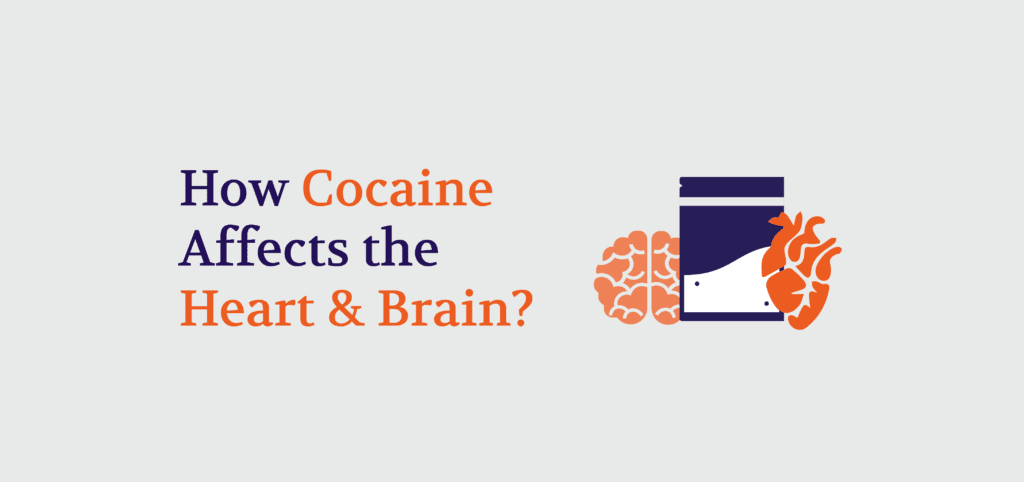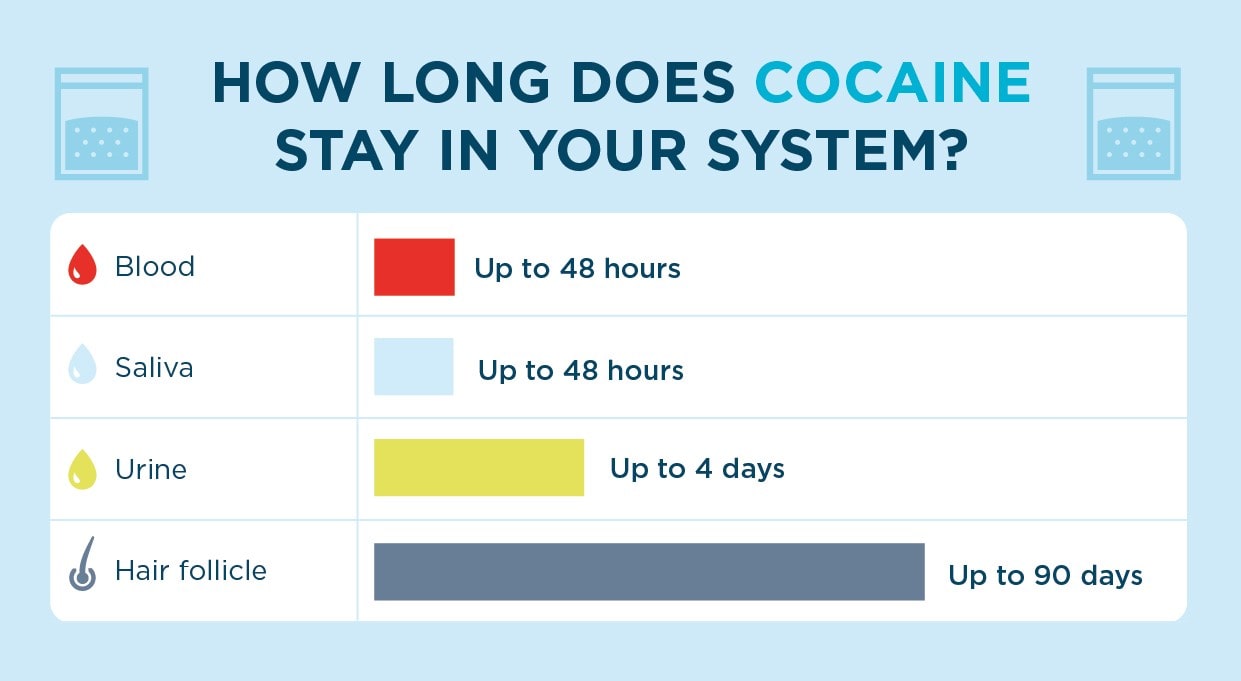Introduction to Cocaine and its Effects
Understanding how long cocaine stays in your blood is important for various reasons, including medical treatment or drug testing purposes. However, acknowledging the potential long-term health risks associated with prolonged substance abuse emphasises the urgent need for comprehensive educational campaigns. These campaigns should not only focus on immediate harm but also on mitigating future harm.
When one delves into comprehending cocaine, it becomes clear that this substance is far from harmless; instead, it exerts a profoundly complex influence on various systems within our body from the moment it enters our bloodstream.
The initial excitement felt by users may seem attractive at first, but it hides a variety of harmful consequences. The immediate effects include increased energy and confidence, as well as a strong sense of focus. However, these temporary feelings can quickly lead to negative psychological symptoms such as paranoia, anxiety attacks, or even hallucinations.
Moreover, one must not disregard the long-term consequences linked to chronic use – such as physical deterioration, including cardiovascular disease and respiratory damage. Those who continue down this dangerous path for an extended period of time will face these issues. To fully comprehend the impact of cocaine, we must delve into its effects on neurochemistry.
This exploration involves the interaction of neurotransmitters and dopamine pathways, leading to persistent cravings and struggles with addiction for those caught in its grip. Come with us as we embark on a journey to gain a deeper understanding of the science behind it.
How Long Does Cocaine Stay in Your Blood?
Factors Affecting Detection Time
When considering the amount of time cocaine can be detected in your blood, there are several factors that make this seemingly straightforward question more complicated. The length of time that cocaine remains detectable varies from person to person due to a variety of influencing factors.
First, we must take into account how often someone uses the drug. Chronic users may have a more difficult time eliminating traces of cocaine compared to occasional users. Additionally, individual metabolism plays a significant role – some people metabolise drugs at a faster rate than others, which can impact detection times.
The purity and potency of the substance are also important factors. Higher-quality cocaine is typically eliminated from the body at a slower rate than lower-quality versions. It is also important to consider the method of ingestion, as different routes have varying speeds of entering and exiting the system. Intravenous use produces rapid effects but may be eliminated faster than other methods such as smoking or snorting.
Finally, remember that every human body is unique. There are various genetic differences that impact our ability to metabolise substances like cocaine efficiently. With all of these factors influencing the length of time cocaine can be detected in your blood, it becomes evident how complex and individualised this science really is.
Methods of Testing for Cocaine in the Blood
When it comes to detecting cocaine in the blood, modern science offers a variety of interesting methods. Each technique demonstrates our ongoing pursuit for precise and efficient drug testing.
One increasingly popular method is immunoassay screening, which uses specific antibodies to attach to cocaine molecules found in blood samples. This approach is not only fast but also affordable, making it well-suited for large-scale screenings.
Gas chromatography-mass spectrometry (GC-MS) elevates precision to a new level. This method separates various compounds in a blood sample through gas chromatography and then analyses them using mass spectrometry, allowing for the detection of even tiny amounts of cocaine metabolites. GC-MS is widely recognized as the gold standard due to its reliability.
Meanwhile, liquid chromatography-mass spectrometry (LC-MS) offers another powerful tool by utilising liquid-based separation instead of gas. The combination of LC with MS enables precise identification and quantification of various substances involved in cocaine metabolism.
Furthermore, researchers have investigated alternative methods such as sweat patch testing or saliva analysis, which are non-invasive but show promising outcomes. These techniques have potential benefits, including convenience and the ability to accurately track recent drug use.
As technology continues to advance, new and innovative methods may emerge that revolutionise how we detect cocaine in the bloodstream. With each scientific breakthrough, we move closer to improved drug monitoring capabilities and a better understanding of substance abuse.
The Dangers of Cocaine Use and Abuse

Short-Term Effects on the Body and Brain
The appeal of cocaine has captivated scientists, artists, and inquisitive minds for decades. This powerful stimulant is notorious for producing a strong surge of pleasure while also causing harm to our bodies and minds. But how long does this tumultuous bond endure? What are the immediate effects that provide a clear depiction of what it’s like to be under its influence?
Imagine this: with just one small line or hit, cocaine quickly begins its journey through your bloodstream like a rollercoaster speeding down an exciting track. As it rushes forward, your heart starts beating faster—much faster than Jack Sparrow escaping from another dangerous situation! And while you may feel unstoppable for a moment—with increased energy levels that could rival even Wonder Woman’s—you may also feel anxiety or restlessness creeping up, as if Batman’s enemy is hiding in the shadows.
“Now, let’s take a detour into the deeper realms of your brain. Once there, cocaine acts as Bilbo Baggins on an epic adventure – it interferes with certain neurotransmitters, such as dopamine, by blocking their reuptake pump. Imagine these small hobbits frantically carrying messages between neurons, unable to return home before being taken away by the cunning Sauron himself!”
away? Beyond heavenly bliss lies perilous torment, for every rise must have its fall. Sweaty palms, clammy with regret, now grip the frigid ledge of reality as paranoia consumes rational thoughts once held dear. Indulging in desires comes at a cost – how long will this intoxication last? When will it all fade away?
Long-Term Health Risks
When discussing the effects of cocaine on the body, it is crucial to consider its long-term health risks. Beyond the immediate high and euphoria, this potent stimulant can have lasting consequences that require our attention. While everyone acknowledges the short-term dangers associated with cocaine use, less is known about its impact on long-term health.
Research indicates that regular or long-term use of cocaine can result in significant cardiovascular problems. The drug’s ability to constrict blood vessels can put strain on them, potentially raising the chances of heart attacks or strokes. Furthermore, extended exposure to large amounts of cocaine has been associated with irregular heartbeats and potentially deadly cardiac arrhythmia.
Another concerning issue is cognitive function impairment. Chronic users often struggle with memory, attention span, and decision-making abilities due to changes in brain structure caused by prolonged cocaine use. Research suggests that these changes may continue even after individuals stop using the drug.
Additionally, there is increasing evidence indicating a connection between long-term cocaine abuse and mental health issues like anxiety and depression. Substance abuse often occurs alongside psychiatric disorders; however, research suggests a possible cause-and-effect relationship between extended cocaine use and a heightened vulnerability to mood disorders.
Tips for Preventing Cocaine Use and Addiction

Education and Awareness
In a constantly changing world, knowledge is truly powerful. When it comes to understanding the science behind how long cocaine remains in the blood, education and awareness are crucial. Take a moment to consider the significance of educating ourselves about substances that can impact our bodies. By arming ourselves with accurate information about the presence of cocaine in our blood, we give ourselves the ability to make informed choices about our health.
But let’s go one step further: awareness. It goes beyond just knowing the facts; it means recognizing the impact these substances can have on individuals and society as a whole. Educating others empowers communities and encourages discussions about addiction, mental health, and available support systems for those who need them most.
We should aim to be agents of change by promoting evidence-based education programs that not only discuss the duration of cocaine in our bloodstream, but also its potential consequences. Empathy should lead us to establish environments where judgment is replaced with compassion, stigma is replaced with understanding, and misguided assumptions are replaced with accurate knowledge.
Education, combined with widespread awareness, creates an environment where people can seek help without fear or shame. Let us build bridges between scientific knowledge and societal progress – a bridge that leads towards healing, empathy, and ultimately a safer tomorrow.
Building a Support System
Dealing with cocaine addiction can be compared to navigating through a dark forest without a compass. It is easy to become lost and overwhelmed by feelings of shame and despair. During these times, having a strong support system can be a lifesaver.
Your support system is like a lifeline, providing life jackets when you are overwhelmed by cravings or experiencing withdrawal symptoms. It includes individuals who truly care about your health and progress towards sobriety. This may include family members, friends, therapists, or support groups – anyone who recognizes that the journey to recovery can be challenging and is best faced with others by your side.
However, constructing this network is not as easy as randomly selecting names; it involves building trust and being vulnerable. Sharing about your difficulties may feel uncomfortable or embarrassing at first, but keep in mind that acknowledging the need for assistance requires great courage.
A strong support system starts with empathy instead of judgement – people who truly understand without placing blame allow you to openly examine the underlying causes of addiction. Honesty must be mutual within this network; if they detect dishonesty or deceit from you, their ability to help decreases.
In the end, although science can provide information on how long cocaine remains in our bloodstreams, overcoming addiction requires more than just data – it also requires love and unwavering compassion from those around us.
Conclusion
In conclusion, the amount of time cocaine remains in your blood can vary depending on factors such as how often you use it, the amount you take, and your metabolism. It is important to have an understanding of the scientific aspects of how long cocaine stays in your blood so that you can make informed choices about drug use.
Keep in mind that even if you no longer feel the effects of cocaine, it may still be detectable in your blood and show up on a drug test. The safest choice is always to refrain from using drugs and prioritise your health and well-being.
See more knowledgeable content from us, Check it now!

